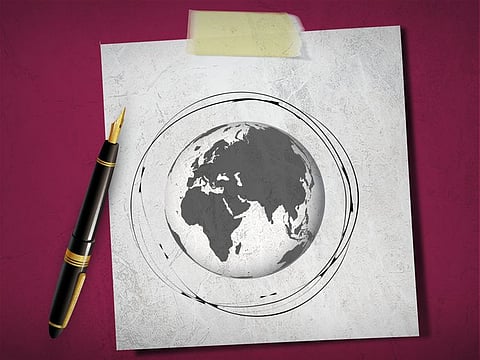Democracy alone cannot fight climate change
World urgently needs visionary leaders, strong environmental institutions to tackle crisis

Are democracies better than other forms of governments in mitigating climate change and reducing greenhouse gas emissions? There is general unanimity that climate change poses greater challenges to democracies by bringing severe stress to societies.
Climate change brings political instability by increasing the number of devastating natural disasters, bringing food insecurity, catalysing economic decline, and multiplying forces that cause conflicts and push people to migrate.
Democracies have much to lose from climate change, but do they do enough to mitigate it? The track record of democracies in protecting their environment is mixed. And their efforts have been no better when it comes to reducing carbon emissions.
Also Read: Why climate change is a medical emergency
Three democratic powers of the world, the US, EU, and Japan, are responsible for at least two-thirds of total historic greenhouse gas emissions.
Even after the signing of the first inter-governmental climate treaty in 1992, except for the EU, most other democracies have continued to increase pumping more carbon into the atmosphere than before.
The world’s most powerful democracy, the US, had not signed the Kyoto Protocol and had withdrawn itself from the Paris Agreement for some years.
‘Willow Project’ in Alaska
Biden Administration has just approved the massive oil drilling ‘Willow Project’ in Alaska — reported first in this column last week — is a fine example of how democracies suffer from structural weaknesses in taking strong measures to cut carbon emissions.
In many industrialised democracies like the US, Canada, Korea, and Australia, electorates lack consensus about the climate crisis’s seriousness.
In Western Europe, though there is a general acceptance that something must be done to mitigate climate change, a huge pushback comes from people if that something needs to compromise their present way of living. It doesn’t, however, mean that the democratic form of governance is bad and authoritarian rule is good for climate action.
Many authoritarian countries are also neither willing to commit nor have fulfilled their commitment to cut carbon emissions. But, at the same time, those who see democracy as a panacea for climate challenges must be careful with their hopes about it.
There are no clear relations that a democratic country will be more climate responsible than other governing mechanisms, at least not until now. Democratic countries, compared to others, have been historically and continue to be high emitters.
The threats of climate change to national and human security are not as straightforward as a perceived security threat from another country or a terror group.
So, for a democracy, taking decisive policy measures against a not-so-well-defined threat is a challenge. Policymaking in a democracy is not only a time-consuming exercise but also goes through a process of bargaining and compromises.
No straightforward solutions
At the same time, climate change is a very complex problem with no straightforward solution. So, the slow and participatory approach of democracy toward meeting climate challenges may likely be more sustainable in the long run. Still, it fails to act fast in reducing its carbon emission as the planet’s health now demands.
In a democracy, leaders are elected by the electorates of their country. Thus, they tend to aim at keeping their electorates happy, and they strive to do so by developing their country’s economy and providing its people with a better living standard.
Sacrificing their country’s economy to improve global commons doesn’t seem to them as a smart political choice to make.
Climate change is not a one-time and sudden occurrence. It is gradually incapacitating the planet, but leaders of a democratic country need to prioritise the short-term needs and demands of the country as they must face their regular election cycles.
For future generations
Protecting the interests of the future generation continues to be an abstract concept for the new age voters.
Moreover, the youth who constitute the leading voice for climate action in the democracies are either yet to get the right to vote, or even if they are eligible to vote, they rarely vote. That makes it easier for political leaders to ignore climate activists and prioritise other issues.
In democracies, political leadership is also likely to listen to business interests and lobby groups to get the resources to contest elections.
Though authoritarian states don’t necessarily make better climate policies, they can pursue long-term plans and objectives as they don’t have to worry about regular elections and populist opposition.
To act decisively against climate change, there is overwhelming evidence that it is not a country’s political system that matters the most.
The key for a country to perform better or worse in climate policy performances basically depends upon the type of leadership and the quality of institutions it has.
The world urgently needs more visionary leaders and strong environmental institutions at this critical juncture.



